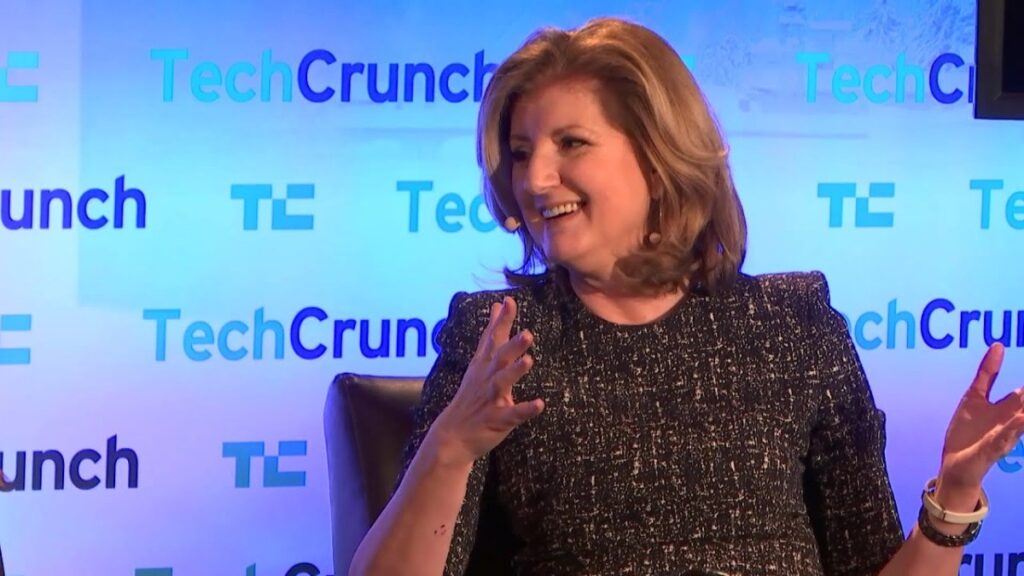Huffington Post founder Arianna Huffington and OpenAI CEO Sam Altman are hard at work on a new venture, Thrive AI Health, which aims to build AI-powered assistant technology that promotes healthier lifestyles.
Thrive AI Health, which is backed by Huffington’s mental wellness company Thrive Global and OpenAI Startup Fund, an early-stage venture fund with close ties to OpenAI, aims to build an “AI health coach” that can offer personalized advice on sleep, nutrition, fitness, stress management and connection, according to a press release issued on Monday.
DeCarlos Love, who previously led fitness and health experiences at Google subsidiary Fitbit, primarily focused on its Pixel Watch wearable device, has been named CEO. Thrive AI Health counts Walmart co-founder Helen Walton’s Alice L. Walton Foundation as a strategic investor, and the Alice L. Walton School of Medicine is one of Thrive AI Health’s early healthcare partners.
It wasn’t immediately clear how much capital Thrive AI Health’s backers have invested. We’ve reached out to clarify details and will update this post if we hear back.
According to Huffington and Altman (via a Time magazine op-ed ), Thrive AI Health’s ultimate goal is to leverage its upcoming health data platform and collaborations with partners, including the Stanford University School of Medicine, to train AI health “coaches” based on scientific research and medical data. Huffington and Altman describe a kind of virtual assistant that would be housed in a smartphone app and Thrive’s enterprise products and learn from users’ behavior to offer health-related “advice” and suggestions in real time.
“Most health advice today, while important, is general,” Huffington and Altman write. “An AI health coach could provide highly accurate, personalized advice: Swap your third afternoon soda for water and lemon; take a 10-minute walk after picking up your kid from school at 3:15 p.m.; start a wind-down routine at 10 p.m. because you have to get up at 6 a.m. the next morning to catch a flight.”
Thrive AI Health is the latest in a long line of efforts in the tech industry to create health-focused apps with AI-powered personalization. Many efforts have faced insurmountable business, technical and regulatory hurdles.
IBM’s Watson Health division, which launched in 2015, was supposed to analyze vast amounts of medical data much faster than human doctors could, spawning insights that could improve health outcomes. The company spent a reported $4 billion to bolster Watson Health through acquisitions, but the technology has proven to be inefficient at best and harmful at worst.
Meanwhile, Babylon Health, a health chatbot startup that partnered with the NHS, once promised it could “automate” consultations with medical professionals, but collapsed after an investigation revealed there was no evidence its technology was better than doctors. Once valued at more than $4.2 billion, Babylon filed for bankruptcy in 2023 and eventually sold its assets for less than $1 million.
In some cases, AI has been found to reinforce negative stereotypes in health research and the medical community at large. For example, a recent study showed that OpenAI’s AI-powered chatbot platform ChatGPT often answers questions about kidney function and skinfold thickness in ways that reinforce false beliefs about biological differences between black and white people.
Other research has found that even trained clinicians can be fooled by biased AI models, suggesting that bias may be difficult to eradicate.
To deflect criticism, Huffington and Altman position Thrive AI Health as a more careful and thoughtful approach to health than has come before, a way to “democratize” health coaching and “address widening health disparities” in a way that is ostensibly safe and privacy-conscious. The company has appointed Gbenga Ogedebe, director of the Health Equity Institute at NYU Langone, as an advisor and claims that the research data its products use is “peer reviewed” and that users have the final say over what information Thrive AI Health’s products use for recommendations.
But as history shows, it may prove extremely difficult for Thrive AI Health to strike a balance between “democratizing” its technology and protecting patient privacy.
In 2016, it was revealed that as part of an app development project by the Royal Free NHS Trust in London, Google’s AI division DeepMind had been given the data of over one million patients, without the patients’ knowledge or consent. Recent large-scale data leaks such as the UnitedHealth and 23andMe scandals have shown the dangers of entrusting sensitive health data to third parties.
Thrive AI Health may be able to avoid the pitfalls of its competitors and predecessors, but either way, it’s likely to be a tough road and will draw attention from skeptics.



